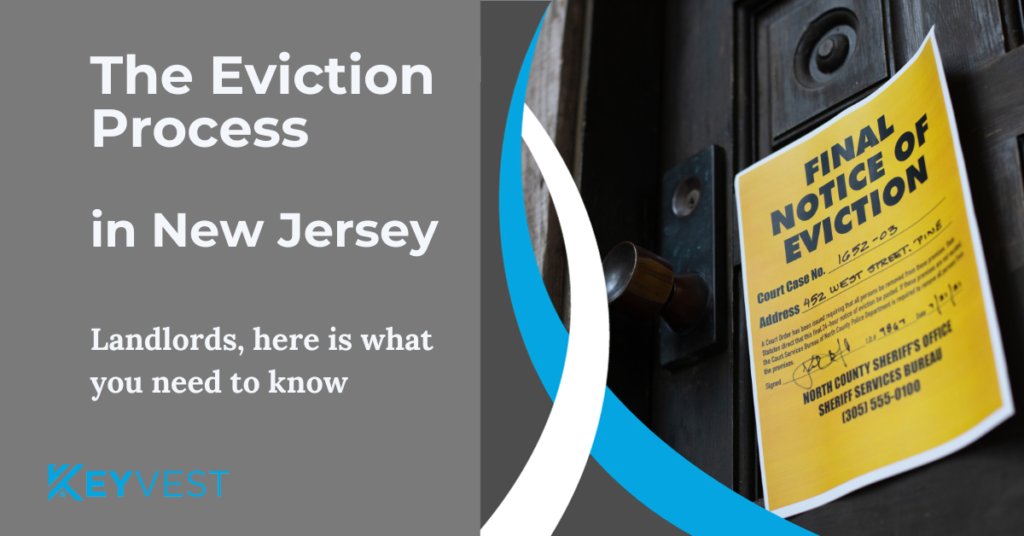
Many property owners and investors at some point encounter the need to evict. It can be an arduous process that requires eviction lawyers (also known as landlord-tenant attorneys).
Many investors and owners have come to us for help, and we have successfully navigated them through this strenuous process with our eviction attorney.
In this article we will cover what the eviction process in New Jersey looks like.
The first thing to understand is that none of these courts run perfectly. Like any institution or business, there are delays, mistakes, etc. ... It is not a black and white system.
Step #1: Have Reason to Evict
There are many reasons to evict, 17 to be exact. And just because you have a reason to evict does not mean you will always win your case. It is important to get professional help to make sure all the I’s are dotted and T’s are crossed to increase the likelihood of it working in your favor.
Here are some of the reasons to evict:
- Non payment of rent (most common)
- Disorderly conduct
- Damage/destruction to property
- Breaking the lease
- Not wanting to rent your property anymore
- Refusal to accept reasonable changes to the lease
- Condo conversion, coop, or fee simple ownership
- Conviction of a drug offense committed on property
- Conviction of assaulting or threatening landlord, their family or employees
- Civil court action holding tenant liable for criminal activity
- Conviction for property theft
Step #2: Provide Notice and File with the court
Depending on the eviction reason, landlords typically need to notify the tenant of their intention to evict so that the tenant has time to correct the situation.
For nonpayment of rent, you do not need to provide a notice. Our practice is to still notify the tenant because this can usually prompt them to pay their missing rent.
Once the notice has been served and the appropriate amount of time has passed for the tenant to take action, the next step is to file with the court. Landlords can either use an attorney or file online themselves.
A note about attorneys: Attorneys are like any other business and have to operate efficiently. They can not spend 5 days a week in court, because they would get nothing else done. If they can line up 5 cases in one day in one county, that is efficient for them. Most attorneys will file within a week of the request. Bigger firms may be able to do this faster, but they will most likely charge more, and different attorneys may handle the same case. Attorneys should explain this from the beginning to set expectations but many do not, which is why it is helpful to have another professional, like a property manager, also guide you through the process.
Step #3: Court Processes the File
The court will process the file and serve the complaint to the tenant.
This can be delayed by the court. It is important to remember that it’s people working in an imperfect system.
Step #4: Court Date Scheduled
Typically the date is scheduled within 1-2 months. Some counties in New Jersey were even longer in 2022 because they were backed up from the eviction moratorium.
At this point, it is now up to the Judge. If the landlord’s case is compelling enough, they will get the judgement for possession – which could still be 1-3 weeks. Non payment of rent is the easiest case to win, especially if the tenant made no attempts to work something out.
Step #5: Warrant for Removal
Landlords are able to file for a warrant for removal 3 days after being issues a judgement for possession in court.
Again, due to human involvement in an imperfect system, this can get messy and take time.
Real life example: The Sherriff called and left a voicemail, we called back several times and heard nothing. A week later he calls and says he does not have our file. It takes another 2 days for him to check with the court. Once he has it, it takes another 7 days to schedule the eviction. All-in-all it took 4 weeks from filing the warrant to scheduling the lock-out.
How long can the entire eviction process take?
Best case scenario (1 week) – Tenant is warned and they just leave
Best case (6-8 weeks) – If the entire process has to be undergone
Worst case (2-4 months) – Courts may be backed up or a tenant files for bankruptcy
Do you need help with an eviction?
Please don’t hesitate to reach out for some guidance or if you would like us and our attorney to step in.
Stay up to date on new eviction laws



